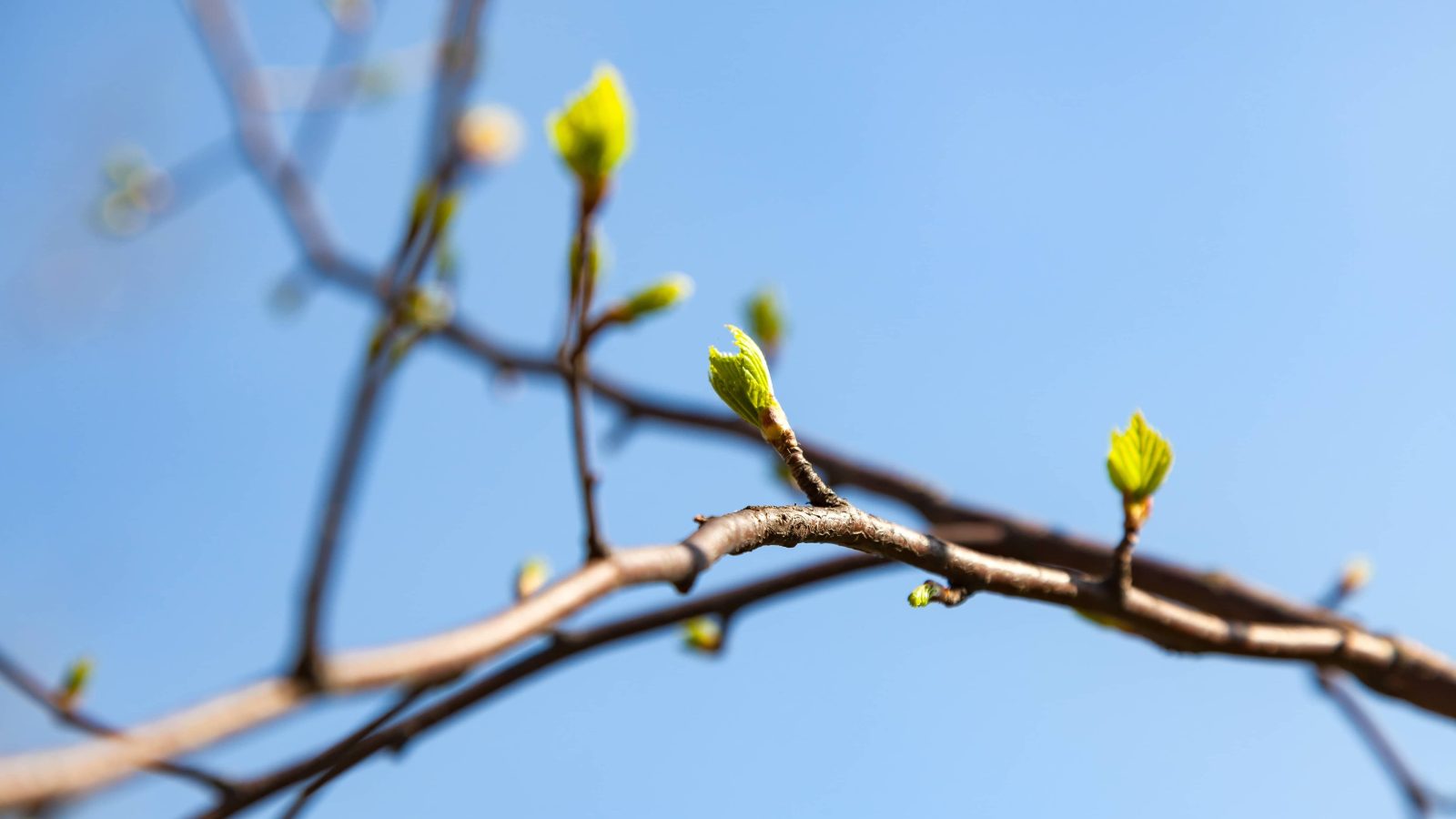Spring has sprung unusually early in the eastern United States. From parts of the Gulf Coast all the way up through southern New England, leaves are popping out of shrubs and trees days or even weeks ahead of schedule. Some areas are experiencing their earliest spring on record, which means communities are also enduring an unusually early allergy season. Experts say rising temperatures, among the most visceral consequences of unfettered fossil fuel combustion, play a role in this year’s accelerated spring.
Phenologists — people who study biological life cycles — use two metrics to delineate the change in seasons: First bloom, when plants begin to flower, and first leaf-out, when leaves unfurl. This year, first bloom and first leaf-out started creeping up the East Coast between three and four weeks ahead of schedule. That’s not entirely unusual; natural variation in seasons results in an early spring every few years. But, in some places, spring arrived extremely early — earlier than any time in the past four decades.
Parts of central Texas and the Louisiana coast, southern Arkansas, southern Ohio, the D.C. area, New York City, and the New Jersey coastline all clocked their earliest spring on record, said Theresa Crimmins, director of the National Phenology Network, a group that collects data on seasons and other natural cycles. The organization uses mathematical models that combine historical observations of first leaf and first bloom with temperature and weather data to predict when lilacs and honeysuckles, typically the first plants to turn green each year, will start becoming active. The group then compares that first growth to an average baseline from the three decades between 1991 and 2020. The network’s models show that spring arrived a full 20 days ahead of schedule in spots across the eastern U.S. The trend was particularly vivid in the mid-Atlantic region.
Warmth has everything to do with when trees start budding and leaves begin opening. This year, an especially mild winter in the eastern U.S., plus a string of very warm days in recent weeks, created ideal conditions for an early-onset spring. “That’s really what caused things to get so far ahead of schedule,” Crimmins said.
It’s tough to peg climate change to a particular early leaf-out in any one place, but evidence of anthropogenic warming is obvious in how the timing of seasons in the U.S. has changed in the past several decades. “There is a clear underlying trend over the long term toward progressively earlier starts to the spring season in much of the country, much of the eastern U.S. in particular,” Crimmins said. “That is the result of steadily increasing global average temperatures.”
Earlier springs are associated with a host of problems for human health. Recent research shows that the lengthening growing season has led to an allergy season that is 21 percent more intense and 20 days longer, on average, in North America. Shortened winters allow insects that carry disease, such as ticks and mosquitos, to get active earlier and spread pathogens to other animals and humans.
“There’s a good chance that if you’re a sufferer of seasonal allergies and live in the eastern two-thirds of the U.S., you’re already feeling the effects of an early bloom,” Ben Noll, a meteorologist who tracks weather in New York’s Hudson Valley, told Grist.
And early spring is a nightmare for farmers across the country who are already struggling to adapt to rapidly shifting environmental conditions. Mississippi’s blueberry crop was imperiled a couple of weeks ago when a hard frost descended on the state after a spate of abnormally warm days caused blueberry bushes to bloom early. One farmer in the state estimated that the frost wrecked 80 percent of his crop.
“These seasonal changes can make life particularly tough for farmers whose livelihoods depend on the weather and ultimately produce the food that we consume,” Noll said.



